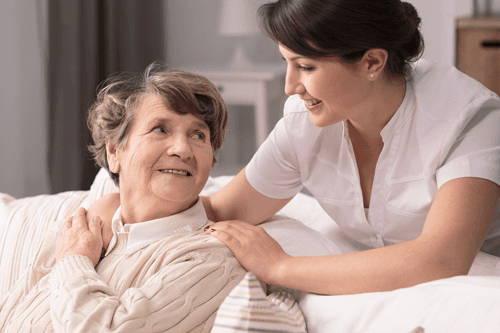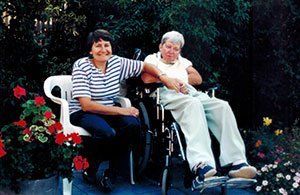Ten Tips for Elder Care
The caregiver role is complex and differs for everyone depending on the needs of the care-receiver.Many times, in the beginning, there may only be a few needs, such as providing transportation or helping with shopping or cooking.
Over time, needs increase, requiring additional services, until the care-receiver is fully dependent on the caregiver.Here are some tips to help you get started:
1. Every caregiver should know as much as possible about the care-receiver.You should know their characteristics and personality style. For example, you should know their likes, dislikes, family members, ailments, etc.
You should know if the care-receiver is outgoing or reserved, task-oriented or people-oriented. Once you get to know them better you will be able to understand their needs and behavior patterns.
2. Every caregiver should know and understand his/her responsibilities, duties, and tasks.As a caregiver, you have a responsibility to be sensitive to the needs of the care-receiver, and to find a way to satisfy their needs.
This may require you to enlist the help of others. The duties of the caregiver usually change and increase over a period of time. Set up and follow a care plan.
Recording essential daily information will assist everyone on the Care Team. It also allows another caregiver to take your place fairly easily.
3. Stay updated on the health condition of the care-receiver.
As the health of the elder deteriorates and more needs start to surface, it is important for the caregiver to find out how to cope with them.
Keep a log of his/her daily activities (medicine taken, food intake, sleep habits, temperament, etc.) so that you will always have a snapshot view of their current health.This information will help the doctor get a more complete picture of the condition of the care-receiver.
4. Assist as little as possible in tasks the senior can usually handle himself/herself. Just as it is not easy being a caregiver, it is not always easy being a care-receiver.
The gradual loss of independence and control over just about everything is difficult to accept. Remember, seniors have the right to their dignity and pride.
5. Caregivers should express warmth and concern towards the welfare of the care-receiver.
If the care-receiver has a poor self image or feelings of inferiority, the caregiver may have to provide reassurance while ignoring negative behavior.
A caregiver must have patience (and stamina) for change in moods.
6. Be a good listener. Many times seniors may simply want you to listen.They want to share their stories. Caregivers must be careful to avoid put downs and choosing sides.
Pay attention and be able to connect the dots between past, present, and future. Listen intuitively or use your sixth sense to hear underlying messages.
7. Smile a lot. Be a good friend and companion. Be as positive as possible.
8. When friends and family neglect to call or visit, do not hesitate to remind them.
9. Ask for help. Advocate for what you need. Sharing the care of a loved-one benefits everyone.
10. Maintain your self-composure and avoid stress. Elder abuse can occur as a result of caregiver stress.
It is imperative that you are aware of and deal with stress.
Author Resource
:- Rebecca Colmer is an elder Care Advocate, Author, Speaker, Publisher, and Caregiver. You can find more caregiving tools and resources at her website:
Caregiving Tools







